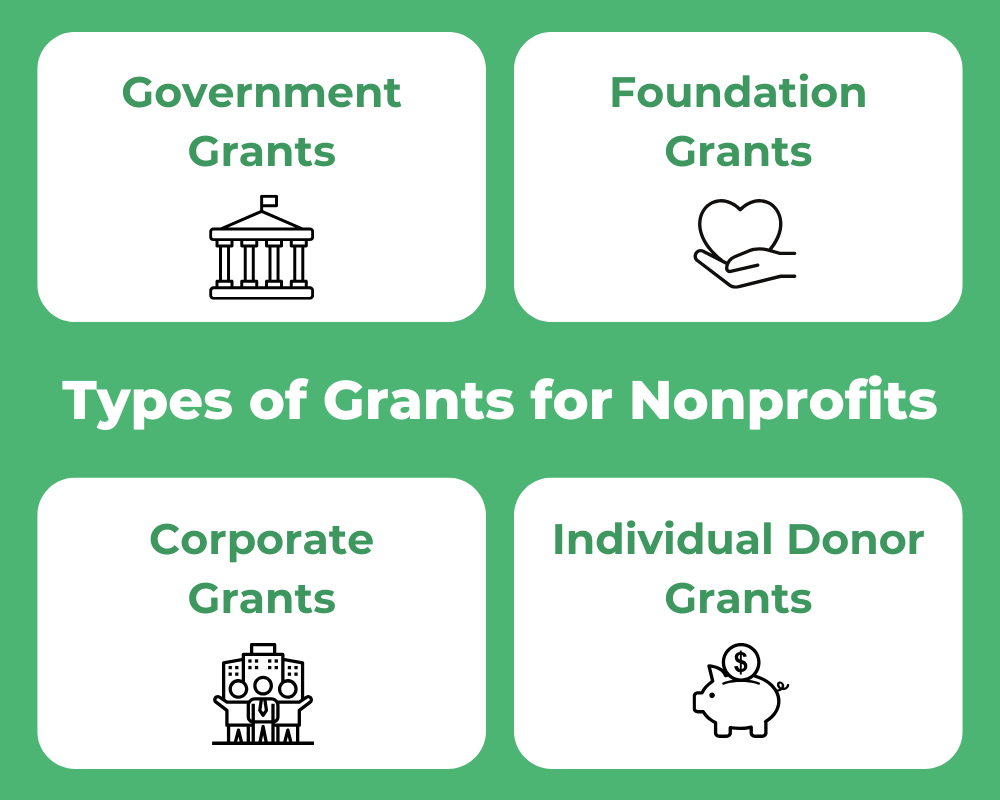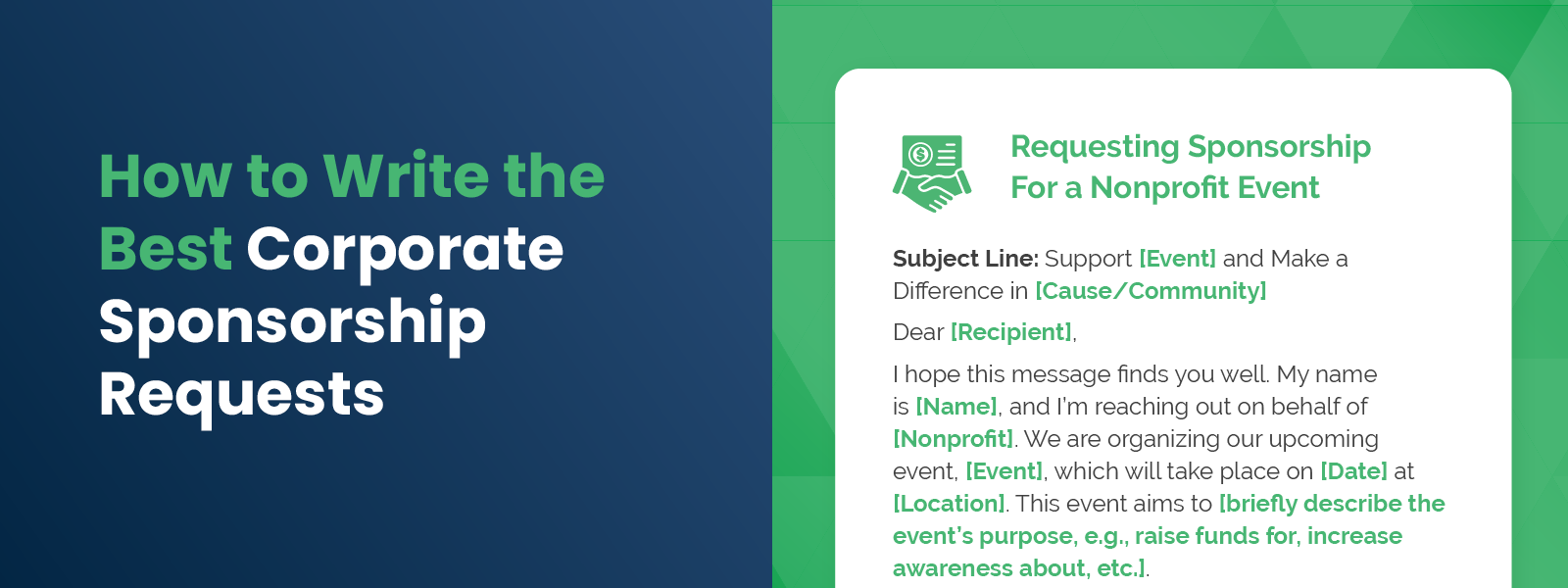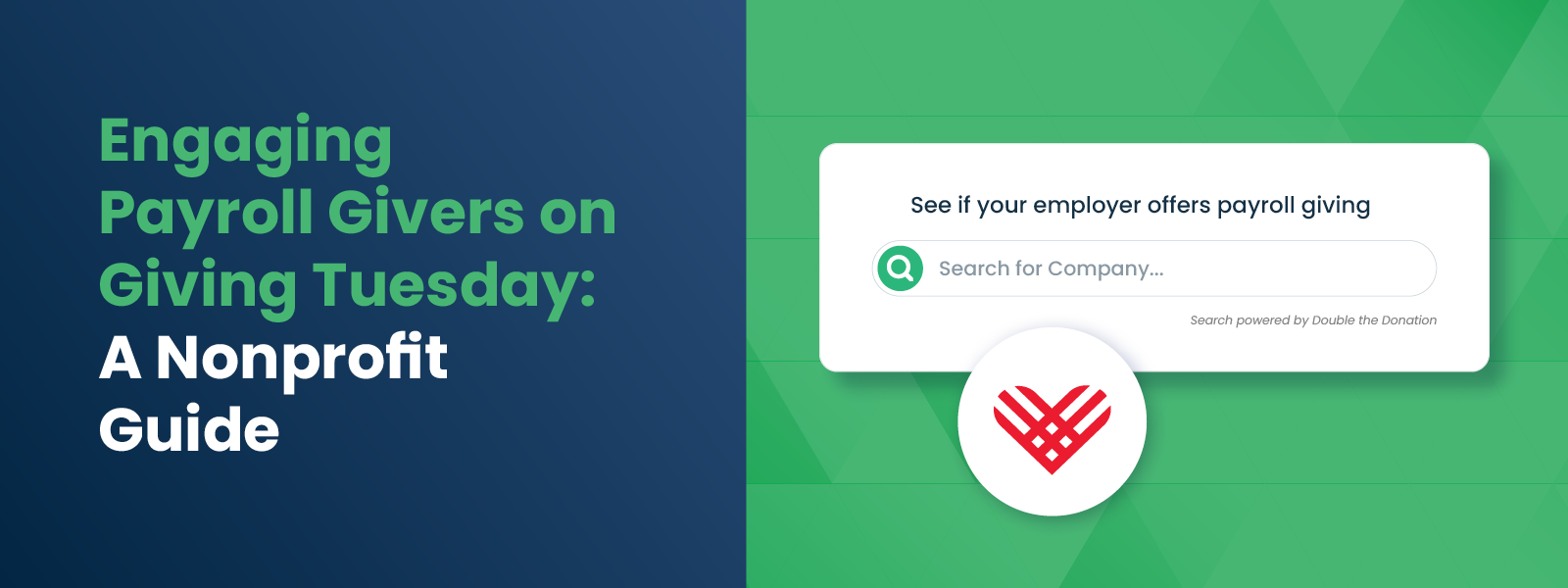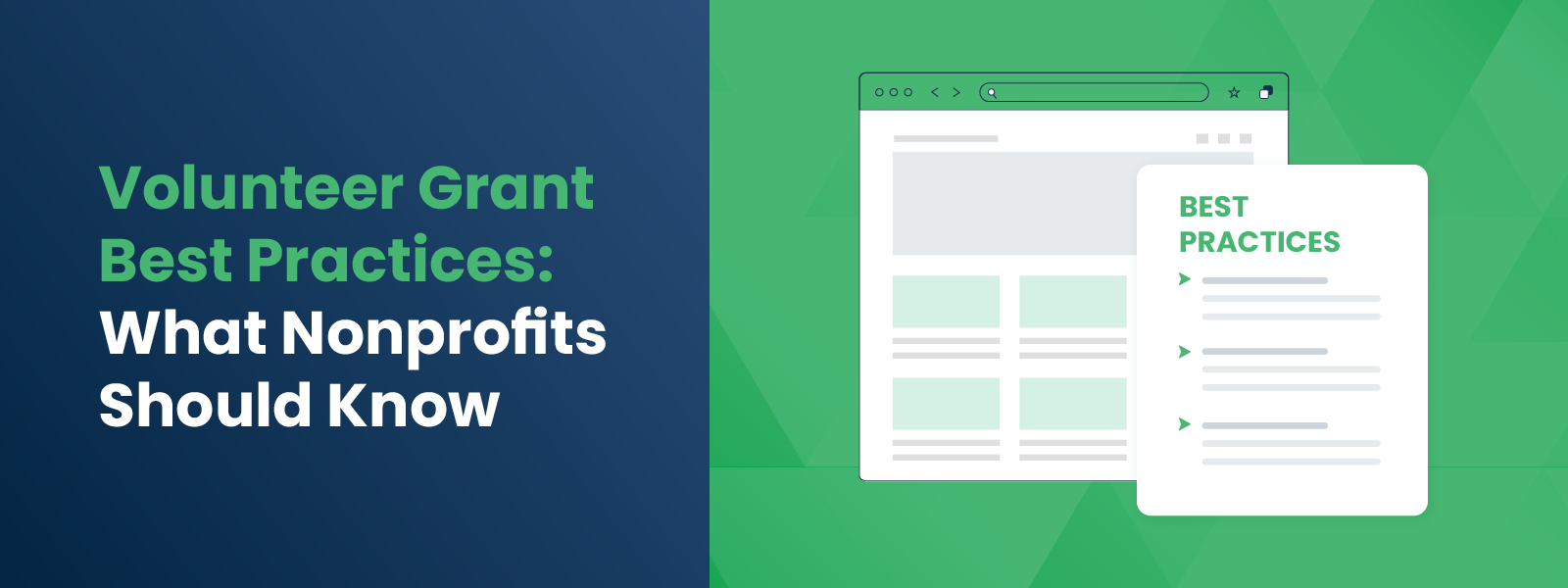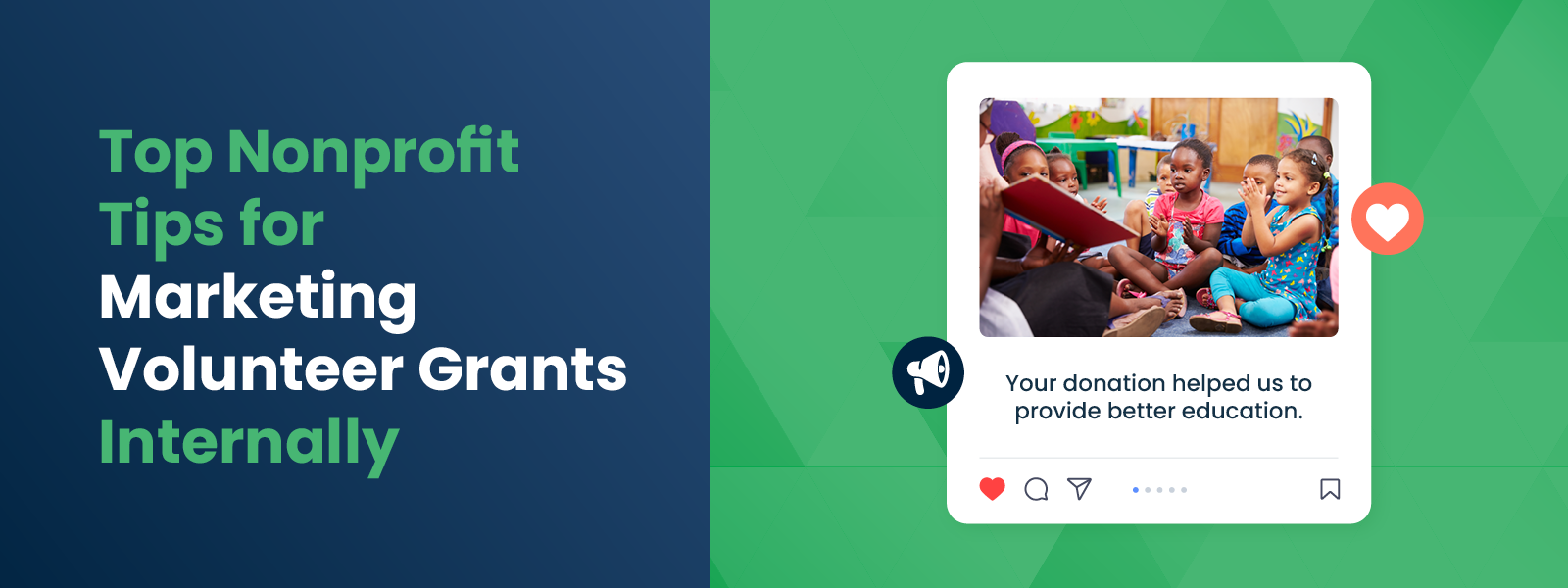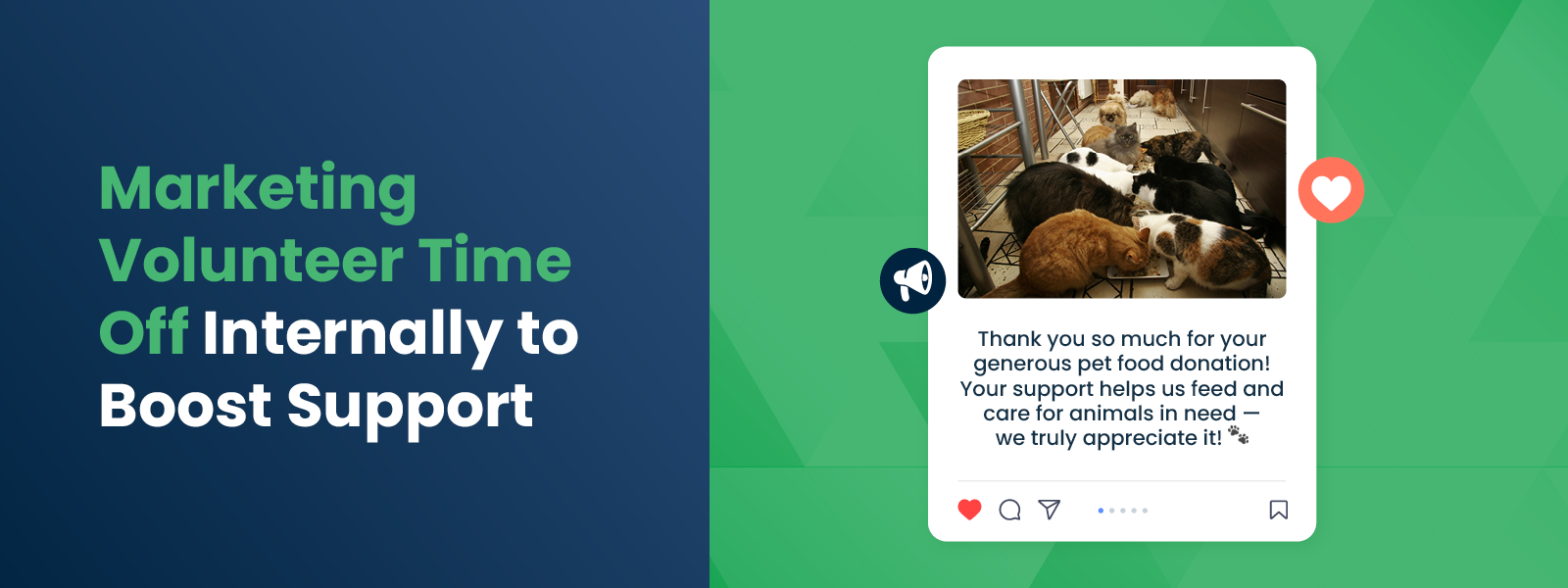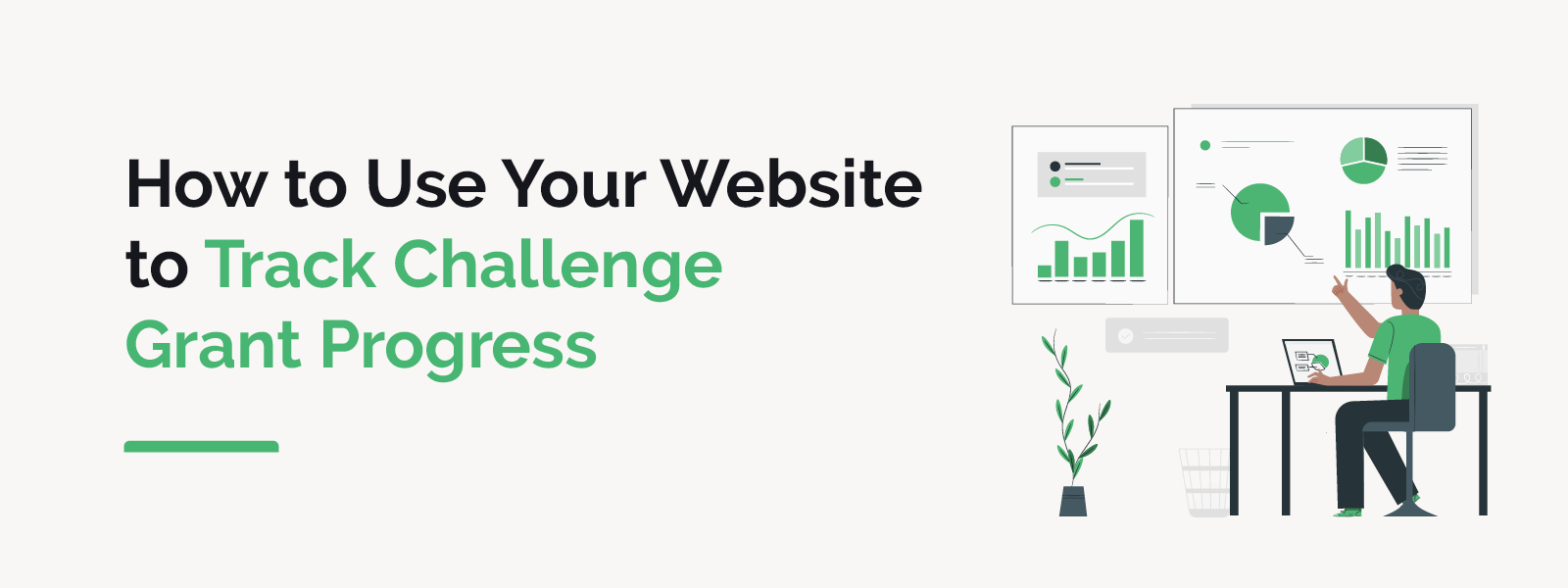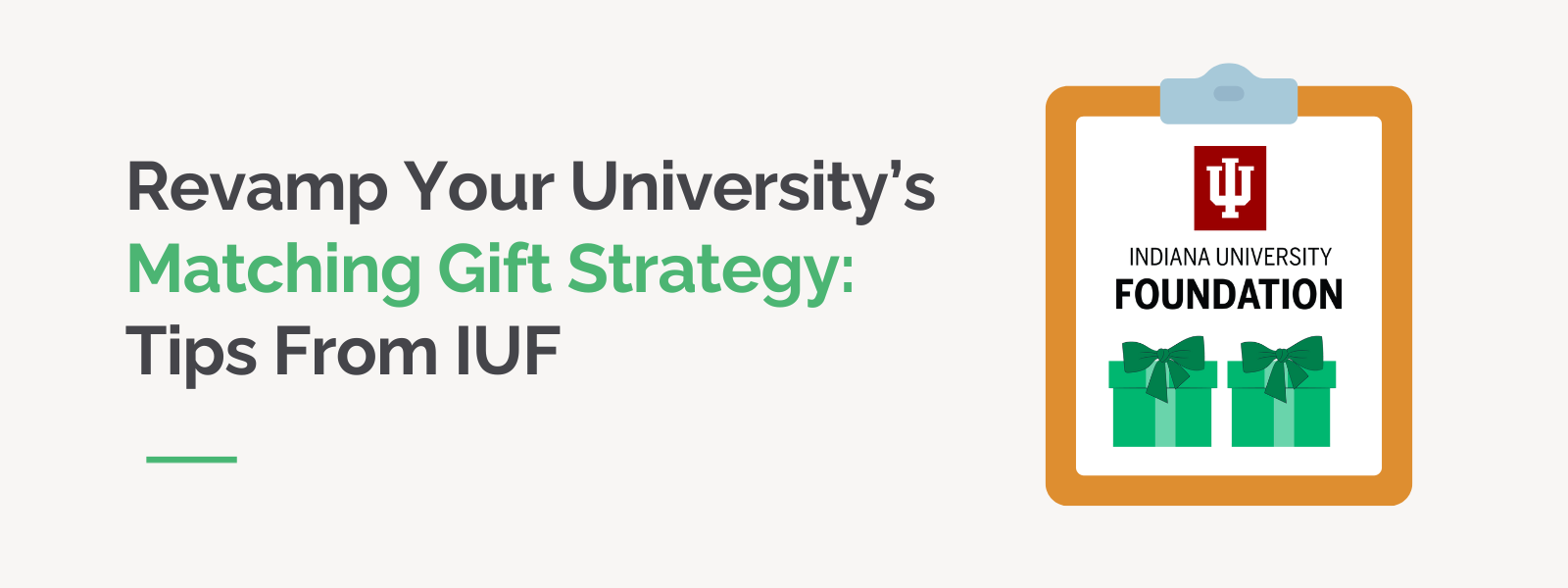How to Find Grants for Nonprofits [Quickly & Easily!]
Securing grants is often a vital part of keeping a nonprofit organization up and running, let alone thriving. Whether you’re funding new programs, expanding services, or covering operational costs, grants can provide the financial support your nonprofit needs to make a more significant impact. However, learning how to find grants for nonprofits—and doing it efficiently—can feel overwhelming, especially with limited time and resources.
The good news? You don’t have to tackle the process alone or struggle to figure it out. In this guide, we’ll walk you through practical and effective strategies to find grants for your nonprofit as quickly and easily as possible. Specifically, we’ll cover:
- Understanding Nonprofit Grants: The Basics
- Preparing for a Successful Grant Search
- Quick and Easy Ways to Locate Grant Opportunities
- Top Tips for Simplifying the Grant Search Process
- 14 Leading Companies With Online Grant Applications
From leveraging the best tools to simplifying your search process, these tips will help you focus on what matters most: creating change and achieving your mission. Let’s begin!
Understanding Nonprofit Grants: The Basics
Nonprofit grants are essential funding sources that empower organizations to achieve their missions, grow their impact, and sustain operations. For those new to the nonprofit world—or even seasoned professionals looking to refine their strategies—understanding the basics of nonprofit grants is crucial.
Let’s break it down now.
What are grants for nonprofits?
Nonprofit grants are financial resources provided by entities such as government agencies, private foundations, corporations, and individual donors. This revenue is generally used to support specific initiatives or general operations of charitable organizations. Unlike loans, grants do not require repayment, making them an essential funding source for nonprofits striving to make a positive impact.
Though the process can vary, funds are typically awarded based on the alignment between a nonprofit’s mission and the grant provider’s priorities. Additionally, organizations often are required to demonstrate their need and capacity to execute programs effectively. Grants can support a wide range of needs, from operational expenses to program development and capacity building.
What types of nonprofit grants are available?
Nonprofit grants can come in all shapes and sizes—and from numerous sources, too. The better you understand the types of grants available to organizations like yours, the more effectively you’ll be able to target the opportunities.
Check out the following kinds of nonprofit grants to learn more:
- Government Grants
- Federal Grants: Provided by national government agencies to support projects that benefit the public. These can include health programs, education initiatives, and disaster relief efforts.
- State and Local Grants: Offered by state or local government offices for region-specific needs. These grants are often targeted at local community development or services.
- Foundation Grants
- Private Foundations: Dedicated nonprofits provide funds for projects in their area of interest, which can range from education to environmental conservation and beyond.
- Community Foundations: Funded by donations from individuals, families, or corporations, these foundations typically focus on local or regional causes.
- Corporate Grants
- Corporations may allocate a portion of their profits to support charitable initiatives, often as part of their Corporate Social Responsibility (or CSR) programs. These grants can be for general support or specific programs that align with the company’s mission.
- Individual Donor Grants
- Philanthropists or wealthy individuals who wish to support specific causes may also offer grants to nonprofits. These grants often come with fewer restrictions than other sources, allowing nonprofits to use the funds more flexibly.
As you can see, nonprofit grants come from a wide range of sources, each with unique benefits and purposes. By understanding the distinctions between various grant opportunities, your organization can strategically pursue revenue that aligns with its mission and needs.
Whether you’re seeking large-scale funding for public initiatives or localized support for community projects, being informed about the various types of grants will empower you to make the most of available resources and drive your nonprofit’s success.
How do nonprofit grants benefit organizations?
Nonprofits often rely on generous funding to power their missions—from individual donors, corporate philanthropy programs, and grant opportunities alike.
Specifically, grants allow nonprofits to scale their operations, expand their reach, and execute important programs with hefty sums of money that otherwise might not be feasible. These funds can also help nonprofits maintain financial stability without relying too fully on any single revenue source.
Not to mention, grant-seeking can provide nonprofits with the credibility and recognition that come with being selected for funding, often increasing their visibility and attracting more donors and volunteers.
Preparing for a Successful Grant Search
Understanding how to prepare for a successful grant search is vital for nonprofits. After all, it lays the groundwork for an efficient and effective funding strategy.
Not to mention, proper preparation ensures that organizations approach grant opportunities with clarity, confidence, and the resources needed to stand out in a competitive landscape.
Clarify your nonprofit’s needs.
Before diving into the grant-seeking process, take the time to identify and define your nonprofit’s funding needs. Are you looking for support for a specific program, covering operational expenses, expanding your reach, or launching a new initiative?
The clearer you are about what you need, the easier it will be to find grants that align with your objectives. Start by setting measurable goals and determining the financial resources required to achieve them. This clarity not only helps you focus your efforts on the most relevant grant opportunities but also strengthens your ability to communicate your needs effectively in applications.
Gather key documentation.
One of the most essential yet sometimes time-consuming aspects of applying for grants is collecting the necessary documentation. By organizing these materials in advance, you can save time and avoid last-minute stress.
Essential documents include…
- Your nonprofit’s proof of 501(c)(3) status
- Recent financial statements
- Tax records
- Strategic plans
- Reports demonstrating your impact
Having these documents readily available ensures that your applications are complete and professional, which increases your credibility with grantmakers.
Top tip: Consider creating a shared digital folder where your team can easily access and update this information as needed.
Create a compelling case for support.
A compelling case for support is the heart of any successful grant application. This is your opportunity to tell your nonprofit’s story, highlight the problem you’re addressing, and explain why your work matters.
For the best results, your case for support should include a clear description of the initiative you’re seeking funding for, the outcomes you aim to achieve, and the broader impact of your efforts.
Use data and testimonials to back up your claims and make your appeal more persuasive. And don’t forget to tailor your narrative to align with the priorities and mission of the grantmaker, demonstrating why your nonprofit is the ideal partner to advance their goals.
Quick and Easy Ways to Locate Grant Opportunities
For many organizations, time and resources are often limited. Luckily, efficient grant-seeking strategies can allow nonprofits to streamline their search efforts, focusing on the most promising opportunities.
Here’s what we recommend to get started!
Grant databases and tools
With so many grants being offered to nonprofits, it can be tricky (if not impossible) to keep track of them all on your own. Luckily, that’s where a grant database tool comes in!
Grant databases and other resources provide nonprofits with centralized platforms to identify funding opportunities that align with their mission and goals. These tools often allow users to filter grants by type, location, funder priorities, and deadlines, saving valuable time in the search process. Many databases also include helpful insights, such as past funding amounts, application guidelines, and contact information for funders.
Let’s take a look at some of the leading grant database tools for nonprofits:
Double the Donation
Double the Donation is a unique platform that focuses on helping nonprofits maximize their funding through workplace giving and other funding opportunities (including matching gifts, volunteer grants, volunteer time off, sponsorships, grants, and more). Through its extensive database of companies with corporate giving programs, nonprofits can uncover and target potential support with ease.
Candid (Foundation Directory Online)
Candid’s Foundation Directory Online is a comprehensive database that provides nonprofit organizations with access to detailed information about thousands of grantmakers. By providing detailed profiles, including funding history, eligibility criteria, and application guidelines, Candid helps nonprofits uncover opportunities tailored to their needs, making the grant-seeking process more targeted and effective.
Grants.gov
Grants.gov is a centralized platform for finding and applying for federal grants. It serves as a one-stop resource for nonprofits seeking government funding opportunities, offering access to over 1,000 federal grant programs across various sectors, including education, health, and community development.
GrantWatch
GrantWatch is a user-friendly online resource that aggregates a wide variety of grant opportunities from across the United States. The platform covers grants for nonprofits, businesses, and individuals, offering detailed listings that include eligibility criteria, funding amounts, deadlines, and contact information.
GrantStation
GrantStation is an online resource that provides nonprofits with access to a large database of grant opportunities from private foundations, corporate giving programs, and government agencies. The platform also offers research and training resources to help nonprofits improve their grant writing and increase their chances of success.
GrantScape
GrantScape is a subscription-based service that provides access to an extensive database of grant opportunities. Designed for both nonprofits and businesses, GrantScape helps users find available funding by offering detailed grant descriptions, eligibility criteria, and deadlines. GrantScape’s advanced features, including grant alerts and reporting tools, allow nonprofits to track the progress of their applications and stay informed about new opportunities as they arise.
Instrumentl
Instrumentl is an innovative grant search platform that leverages data-driven insights to help nonprofits find and apply for grants more effectively. The platform provides detailed information on grantmakers, including past funding history, application deadlines, and funding amounts, enabling nonprofits to prioritize the most promising opportunities.
By streamlining access to grant opportunities and offering tools to manage the application process, these platforms empower nonprofits to pursue funding more strategically and efficiently.
Donor employment information
Companies want to support the nonprofits their employees care about. Lucky for you, that means your donor employment information has the potential to uncover hidden funding through workplace giving programs and other grant opportunities. Many businesses even offer grants tied to employee engagement, such as volunteer grants, matching gifts, or other employee-nominated funding initiatives.
By identifying where donors or volunteers work (hint: we recommend collecting employer data as individuals give, register for an event, or sign up for a volunteer opportunity), nonprofits can connect with corporate giving programs that align with their supporters’ activities. This targeted approach not only strengthens relationships with individual supporters but also opens doors to new grant opportunities that might otherwise go unnoticed.
Networking & local resources
Finally, networking and leveraging local resources (such as events, conferences, and associations) can offer invaluable opportunities for uncovering grants and building relationships with funders.
For example, community foundations, other nonprofits, and local government offices can often provide information about grants specific to the region or sector. Attending networking events, workshops, or webinars allows nonprofits to connect with grantmakers, gain insights into funding priorities, and learn about upcoming opportunities. Meanwhile, building personal connections with funders can make a significant difference in the competitive grant application process, as it helps establish trust and demonstrates a genuine commitment to collaboration.
Top Tips for Simplifying the Grant Search Process
Simplifying the grant search process empowers nonprofits to better navigate the often complex world of grant applications with greater efficiency.
By implementing the following strategies to streamline their search, nonprofits can maximize their resources, prioritize high-potential opportunities, and improve the quality of their applications. Here’s what we recommend:
1. Focus on alignment.
When seeking grants, one of the most critical practices involves focusing on alignment between your nonprofit’s mission and the funder’s priorities. After all, grants are generally awarded based on how well your organization’s work aligns with the objectives and values of the funding body. To increase your chances of success, take the time to thoroughly research the grants you’re applying for and ensure they match your nonprofit’s specific goals, geographic focus, and target population.
Meanwhile, tailoring your application to reflect how your mission and project align with the funder’s goals demonstrates a strong fit and shows that your nonprofit will be a responsible steward of their funds.
2. Create a detailed grant calendar.
A well-organized grant calendar is essential for staying on top of application deadlines and managing the grant-seeking process efficiently. Nonprofits often face a high volume of grant applications, and keeping track of each opportunity’s deadline, requirements, and submission guidelines can be overwhelming without a plan.
Thus, a detailed grant calendar should include all relevant deadlines, follow-up dates, and key milestones, such as when letters of intent, full proposals, and supporting documents are due.
By planning ahead and organizing grant timelines, nonprofits can avoid last-minute scrambling and ensure that each application receives the necessary attention and quality.
3. Delegate tasks.
Grant writing and submission can be a time-consuming process, and having a team approach can help streamline the work. Delegating tasks to the appropriate team members will improve efficiency and ensure all aspects of the application are thoroughly addressed.
For example, one team member might be responsible for gathering financial documents, while another may focus on drafting the narrative sections of the proposal. By distributing tasks based on strengths and expertise, nonprofits can ensure that the application process is well-managed and that nothing is overlooked. Clear communication among team members is crucial to ensure a cohesive and polished final proposal.
4. Don’t overlook smaller grants.
Large, high-profile grants are often the focus of many nonprofits. However, smaller grants can be equally valuable—and often more accessible.
Many local foundations, corporations, and government agencies offer grants with lower funding thresholds, making them more attainable for smaller organizations or specific projects. Additionally, smaller grants can serve as stepping stones to larger funding opportunities and can help build a track record of success that strengthens your nonprofit’s credibility.
The bottom line is this: Never underestimate the value of smaller grants. They can be a crucial part of diversifying your funding sources and meeting immediate program needs!
5. Use rejections as learning opportunities.
Rejection is a natural part of the grant-seeking process. However, it’s important to approach it with a growth mindset in order to drive the best results overall. When your nonprofit’s application is not selected, use the experience as an opportunity to learn and improve.
Many funders even provide feedback on why a proposal was not successful. This can offer valuable insights into areas that may need strengthening. For example, the clarity of the application, the project’s alignment with the funder’s priorities, or the budget justification.
By analyzing rejection and applying those lessons to future applications, your nonprofit can increase its chances of success in subsequent funding rounds or within the realm of other opportunities.
6. Consider outsourcing expert help.
Grant writing can be a complex and specialized skill. Sometimes, it makes sense to outsource certain aspects of the process to experts. Hiring a grant writer or consultant can be a smart investment.
After all, an experienced professional can help your nonprofit craft a compelling, well-written proposal that is more likely to stand out from the competition. Additionally, outsourcing expert help can free up internal staff to focus on other areas of the nonprofit’s work.
If your organization is struggling with writing quality proposals or simply lacks the time to dedicate to grant applications, bringing in outside expertise could significantly improve your outcomes.
7. Use a Dedicated Database.
One of the most efficient ways to streamline your grant search is by using a dedicated database. Double the Donation’s platform is a powerful resource for nonprofits, offering not only a comprehensive list of workplace giving programs, including corporate grant information.
With our database, you can track eligibility, discover new funding opportunities, and focus on what matters most – growing your mission. Plus, our platform integrates seamlessly with your systems, making it easier than ever to manage your grant efforts. Check out the video preview below to see how Double the Donation’s database can simplify your search and enhance your fundraising strategy.
14 Leading Companies With Online Grant Applications
Companies supply some of the best grant opportunities for nonprofits. To provide you with a headstart in your search, we’ve selected a few examples of businesses with generous grant potential.
Check out the following list, and start applying today!
SC Johnson
SC Johnson, a global leader in household cleaning products, offers grant opportunities that align with their commitment to sustainability, community impact, and innovation. Through their charitable giving programs, SC Johnson supports nonprofit organizations that focus on environmental protection, improving quality of life, and advancing science and education. They often collaborate with local community-based organizations, as well as larger environmental groups, to promote initiatives that create positive environmental change.
Nonprofits interested in applying for SC Johnson grants should focus on projects that align with these core values and demonstrate measurable impact in the communities they serve.
Get started with the online application here.
Nationwide Mutual Insurance Company
Nationwide Mutual Insurance Company is deeply committed to making a difference in communities across the country. Through the Nationwide Foundation, they offer grants in areas such as education, financial literacy, and community development. Nationwide prioritizes programs that aim to create financial stability, reduce inequality, and foster economic empowerment.
Nonprofits interested in funding can focus on educational programs, youth empowerment initiatives, and efforts to improve the financial well-being of individuals and families. The Nationwide Foundation also funds programs that support disaster relief efforts and initiatives that enhance community safety and security.
Get started with the online application here.
Target
Target is well-known for its commitment to supporting community-driven projects that focus on education, homelessness prevention, and diversity and inclusion. The Target Foundation offers grants to nonprofits that work to provide access to education, reduce inequality, and support underserved communities. They prioritize initiatives that impact youth and families, particularly those in communities where Target operates.
Nonprofits focused on expanding educational opportunities, increasing access to social services, or promoting diversity and inclusion can explore Target’s grant opportunities for funding support.
Get started with the online application here.
Bank of America
Bank of America supports nonprofits through its philanthropic arm, the Bank of America Charitable Foundation. The foundation focuses on improving economic mobility, addressing critical community needs, and advancing environmental sustainability. They provide grants in areas such as workforce development, affordable housing, and community revitalization.
Nonprofits can benefit from Bank of America’s commitment to creating inclusive economies by applying for grants that support initiatives aimed at improving access to financial resources, education, and job opportunities for underserved communities.
Get started with the online application here.
Cisco
Cisco is a global leader in technology and innovation, and its corporate philanthropy efforts reflect its mission to drive social change. Cisco’s grant opportunities are focused on education, technology access, and social inclusion. The Cisco Foundation offers grants to nonprofits that empower individuals through technology, promote digital skills training, and bridge the technology gap for underserved populations. They also support initiatives that drive economic development, improve healthcare access, and foster social innovation.
Nonprofits working on projects that harness technology for positive community impact are well-aligned with Cisco’s philanthropic goals.
Get started with the online application here.
Walmart
Walmart’s philanthropy is centered on supporting the communities in which its stores operate. The Walmart Foundation offers grants to nonprofits working in areas such as hunger relief, sustainable agriculture, and workforce development. Walmart prioritizes initiatives that improve food security, advance sustainability, and provide employment opportunities for individuals facing barriers to the workforce.
Nonprofits can apply for grants focused on reducing food insecurity, enhancing economic opportunity, and driving environmental impact in local communities.
Get started with the online application here.
Wells Fargo
Wells Fargo is dedicated to supporting nonprofits that drive economic advancement and create positive social change. The Wells Fargo Foundation offers grants in areas such as education, community development, affordable housing, and small business support. Wells Fargo focuses on initiatives that promote diversity and inclusion, financial literacy, and workforce development.
Nonprofits seeking grants should focus on projects that help strengthen local economies, empower individuals, and ensure that underserved communities have access to financial opportunities and support services.
Get started with the online application here.
Truist
Truist, formed through the merger of financial institutions SunTrust and BB&T, is committed to fostering economic mobility and community well-being. Truist’s philanthropic focus is on education, health and human services, community development, and financial literacy. The Truist Foundation provides grants to nonprofits that work to improve economic inclusion, enhance educational opportunities, and promote financial empowerment.
Nonprofits addressing social equity and economic disparities, particularly those that empower underserved populations, align with Truist’s funding priorities.
Get started with the online application here.
Liberty Mutual
Liberty Mutual’s charitable giving focuses on building safer, more resilient communities and providing support to those in need. Through the Liberty Mutual Foundation, they offer grants to nonprofits working in areas such as safety, education, and disaster relief. Liberty Mutual prioritizes initiatives focusing on reducing injuries and accidents in communities and improving access to education and social services.
Nonprofits that emphasize safety awareness, disaster preparedness, and community resilience are well-positioned to benefit from Liberty Mutual’s funding.
Get started with the online application here.
Google is one of the leading technology companies with a strong commitment to supporting social impact initiatives worldwide. Through Google.org, the company offers grants to nonprofits that focus on education, economic opportunity, technology access, and social innovation. Google places a strong emphasis on projects that use technology to drive positive change. And there’s a particular focus on those that address global challenges such as poverty, inequality, and climate change. Plus, the company offers up to $10,000 in advertising space for organizations through its Google Ad Grants program!
Nonprofits that integrate technology into their work or that aim to create a more sustainable and equitable world can benefit from Google’s philanthropic efforts.
Get started with the online application here.
Kroger
Kroger, one of the largest supermarket chains in the U.S., is dedicated to supporting communities and promoting sustainability. The Kroger Foundation offers grants to nonprofits focusing on food security, health and wellness, and environmental sustainability. Their initiatives include providing access to healthy food, supporting hunger relief programs, and promoting sustainable agriculture practices.
Nonprofits that work to reduce food insecurity, promote healthy living, or engage in environmental conservation are prime candidates for funding.
Get started with the online application here.
State Farm Insurance
State Farm Insurance is committed to improving communities and creating safer environments. Through the State Farm Foundation, they offer grants to nonprofits that focus on community development, safety, and education. State Farm emphasizes projects that promote safe driving, disaster preparedness, financial literacy, and youth education.
Nonprofits focusing on safety initiatives, educational programs, or natural disaster recovery can access funding through State Farm’s grant programs.
Get started with the online application here.
Whole Foods
Whole Foods Market supports nonprofits dedicated to creating a positive environmental impact and promoting sustainable food systems. The Whole Foods Market Foundation offers grants to organizations focused on environmental sustainability, food access, and promoting healthy living. Whole Foods prioritizes projects that advocate for organic farming, reduce food waste, and improve the overall health of communities.
Nonprofits working in areas such as nutrition, community gardens, and sustainable agriculture can explore Whole Foods’ grant opportunities.
Get started with the online application here.
Costco
Costco is known for its commitment to supporting local communities and promoting social responsibility. Through the Wholesale Community Giving Program, Costco offers nonprofit grants focused on hunger, education, health, and disaster relief. The company supports its local communities where it operates and prioritizes basic needs such as food, healthcare, and education.
Nonprofits with projects aligned with these goals can apply for funding through Costco’s grant programs.
Get started with the online application here.
Wrapping Up & Additional Resources
Finding grants for your nonprofit doesn’t have to be a time-consuming or daunting task. By focusing on your nonprofit’s unique needs, utilizing available resources, and staying organized, you can streamline the process and maximize your chances of securing the funding you need.
Remember, persistence is key—every application and connection brings you closer to success. Start implementing these strategies today, and you’ll soon find yourself navigating the grant landscape with confidence and ease. Good luck!
Interested in learning more about smart fundraising, grant-seeking, corporate giving, and more? We recommend checking out these additional resources:
- Corporate Sponsors: 65+ Companies That Donate to Nonprofits. Looking for corporate sponsors to support your nonprofit initiatives with generous grants and more? Dive into this detailed list of companies known for their giving.
- Fuel Fundraising: Access The Ultimate Guide to Corporate Volunteer Grants. Don’t overlook volunteer grants in your search! These “Dollars for Doers” can amplify your fundraising efforts by turning volunteer hours into funds.
- Corporate Philanthropy: Benefits, Tips, Examples, and More. Understanding corporate philanthropy is essential for building strong partnerships. This resource covers the advantages of corporate giving, strategies to engage companies effectively, and real-world examples of successful collaborations.

![How to Find Grants for Nonprofits [Quickly & Easily!]](https://doublethedonation.com/wp-content/uploads/2025/01/DTD_How-to-Find-Grants-for-Nonprofits-Quickly-Easily_Feature-1536x576.png)
